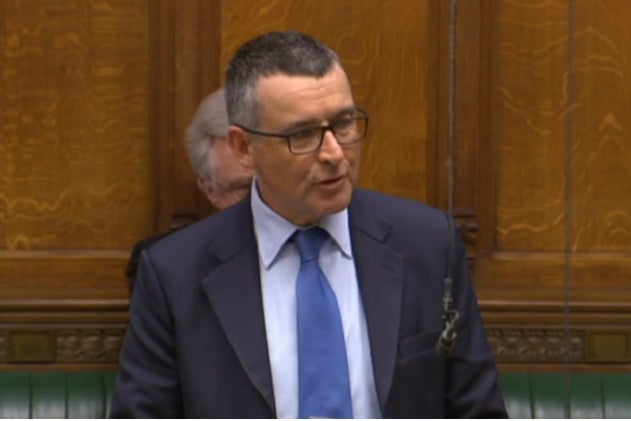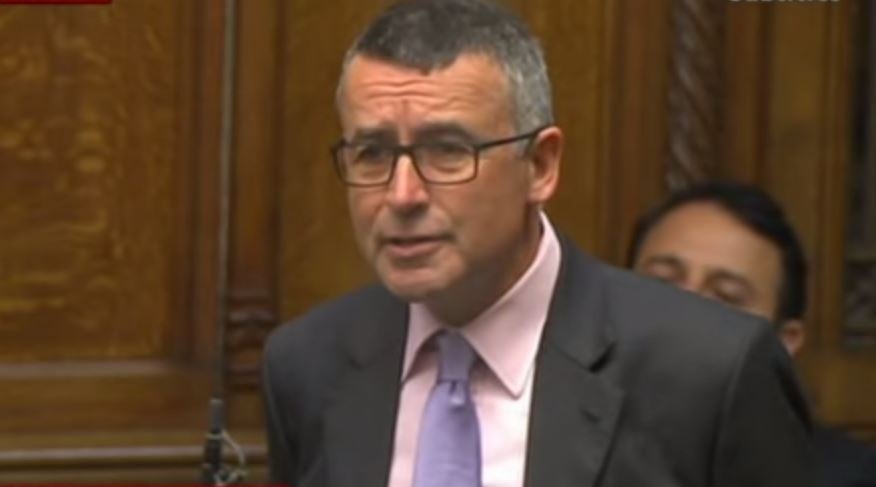Senior MP calls for safeguards over proposed Chinese-built nuclear power station
Bernard Jenkin says government should take 'golden share' in Bradwell B in Essex

Your support helps us to tell the story
From reproductive rights to climate change to Big Tech, The Independent is on the ground when the story is developing. Whether it's investigating the financials of Elon Musk's pro-Trump PAC or producing our latest documentary, 'The A Word', which shines a light on the American women fighting for reproductive rights, we know how important it is to parse out the facts from the messaging.
At such a critical moment in US history, we need reporters on the ground. Your donation allows us to keep sending journalists to speak to both sides of the story.
The Independent is trusted by Americans across the entire political spectrum. And unlike many other quality news outlets, we choose not to lock Americans out of our reporting and analysis with paywalls. We believe quality journalism should be available to everyone, paid for by those who can afford it.
Your support makes all the difference.In the wake of the decision to ban Huawei from involvement in the UK’s 5G telecoms network, a senior Conservative MP has called for changes to the law to safeguard a proposed nuclear power station from “malign foreign influence” from China.
Bernard Jenkin called on ministers to introduce provisions through the upcoming national security and investment bill to grant the UK government a “golden share” in critical infrastructure projects being undertaken by foreign companies, like the Bradwell B power plant in Essex.
Under his proposal, the share would grant the government powers to prevent takeovers and to appoint board members, while senior company executives would have special responsibilities to notify UK authorities if activities - such as the theft of nuclear secrets or the transfer of intellectual property - were taking place against the national interest.
Current proposals would see a consortium involving Chinese state-owned CGN and France’s EDF finance, build, own and operate two reactors at Bradwell capable of producing 2.2 gigawatts of electricity, enough to power 4 million homes. The scheme is still at a consultative and pre-planning stage, with construction expected to take up to 12 years if given the green light.
But Mr Jenkin, the chair of the influential House of Commons Liaison Committee and an MP for Essex seat since 1992, said action must be taken now to limit China’s power to exploit involvement in the project.
“The Government has agreed that the Chinese government should build a key part of our own critical national infrastructure (CNI),” he wrote in an article for the ConservativeHome website. “If this is to go ahead, the very least we should insist upon is a set of safeguards to protect our national security and CNI from malign foreign influence from a hostile government.
"The Chinese government has demonstrated an established pattern of IP (intellectual property) theft, nuclear espionage, political interference with private enterprise and cyber attacks on Western interests. Chinese companies are not the same as private companies based in Europe or the United States, or even state-owned ones like the French EDF, which is building Hinkley Point.

“Only three years ago, China passed a law granting itself the power to compel any Chinese citizen to cooperate with the government of China for national security purposes. CGN has itself been indicted by the US government, after US-based employees attempted to recruit American nuclear experts for projects in China.
“If we don’t want the UK taxpayer to contribute to the strength of the Chinese military, or UK-based technology to mysteriously end up in Beijing, we need to act swiftly and decisively, whilst also recognising that - at least for now - we still need Chinese financing and technical expertise in order to expand the UK’s civil nuclear infrastructure.”
Mr Jenkin said that existing safeguards for nuclear power stations are “wholly inadequate” for a situation where the Chinese state would hold a major stake in the plant.
“The government must manage the risks of foreign investment in UK CNI if we are to both build an infrastructure to secure our future as well as to regain China’s respect for our system and our values,” he said. “Its huge economy and our own are interlinked in so many ways, and we should have positive and reciprocal engagement, but we must end the decades of blindness to China’s long-term aim of creating Western dependency on it.”
Join our commenting forum
Join thought-provoking conversations, follow other Independent readers and see their replies
Comments